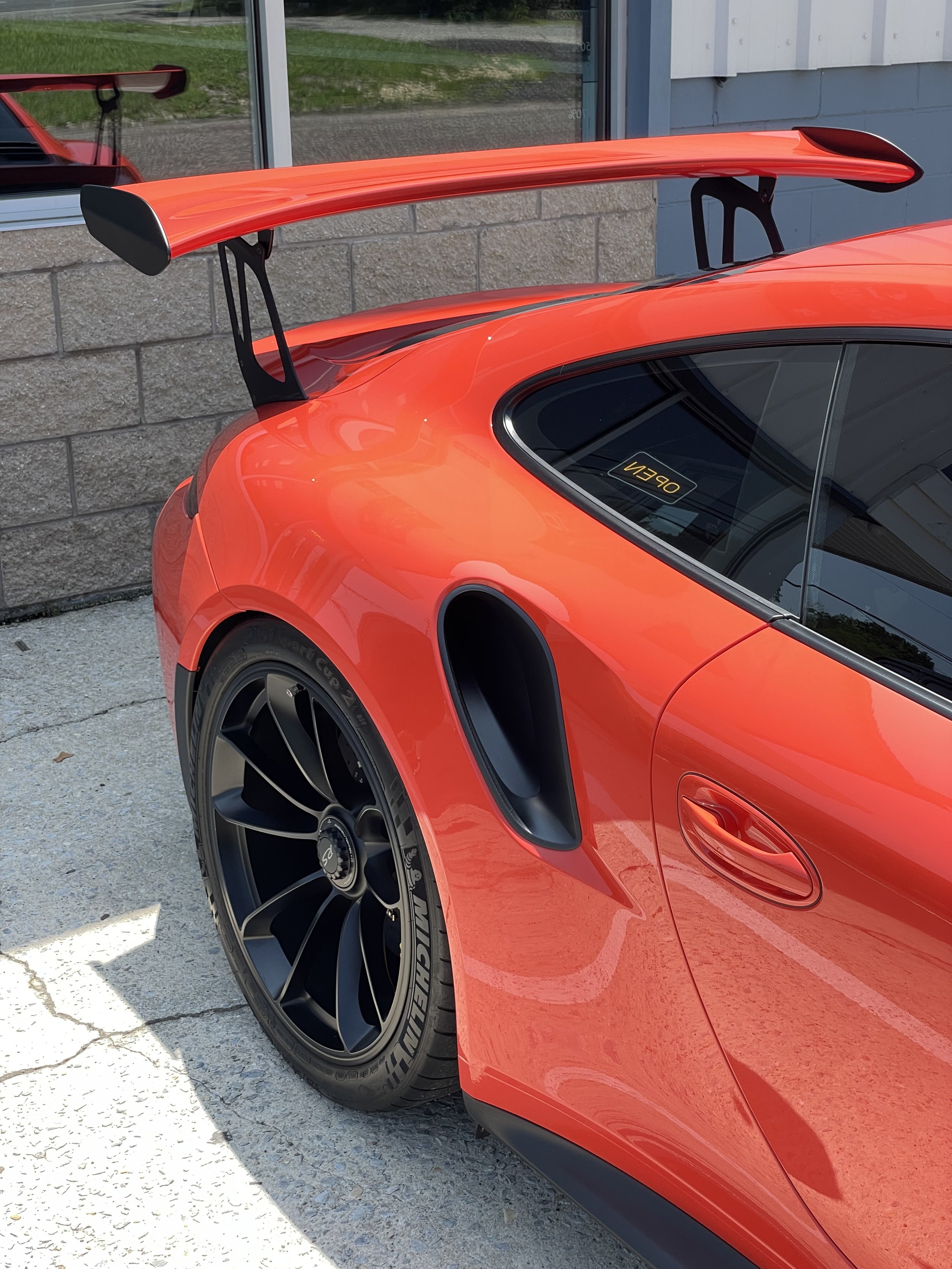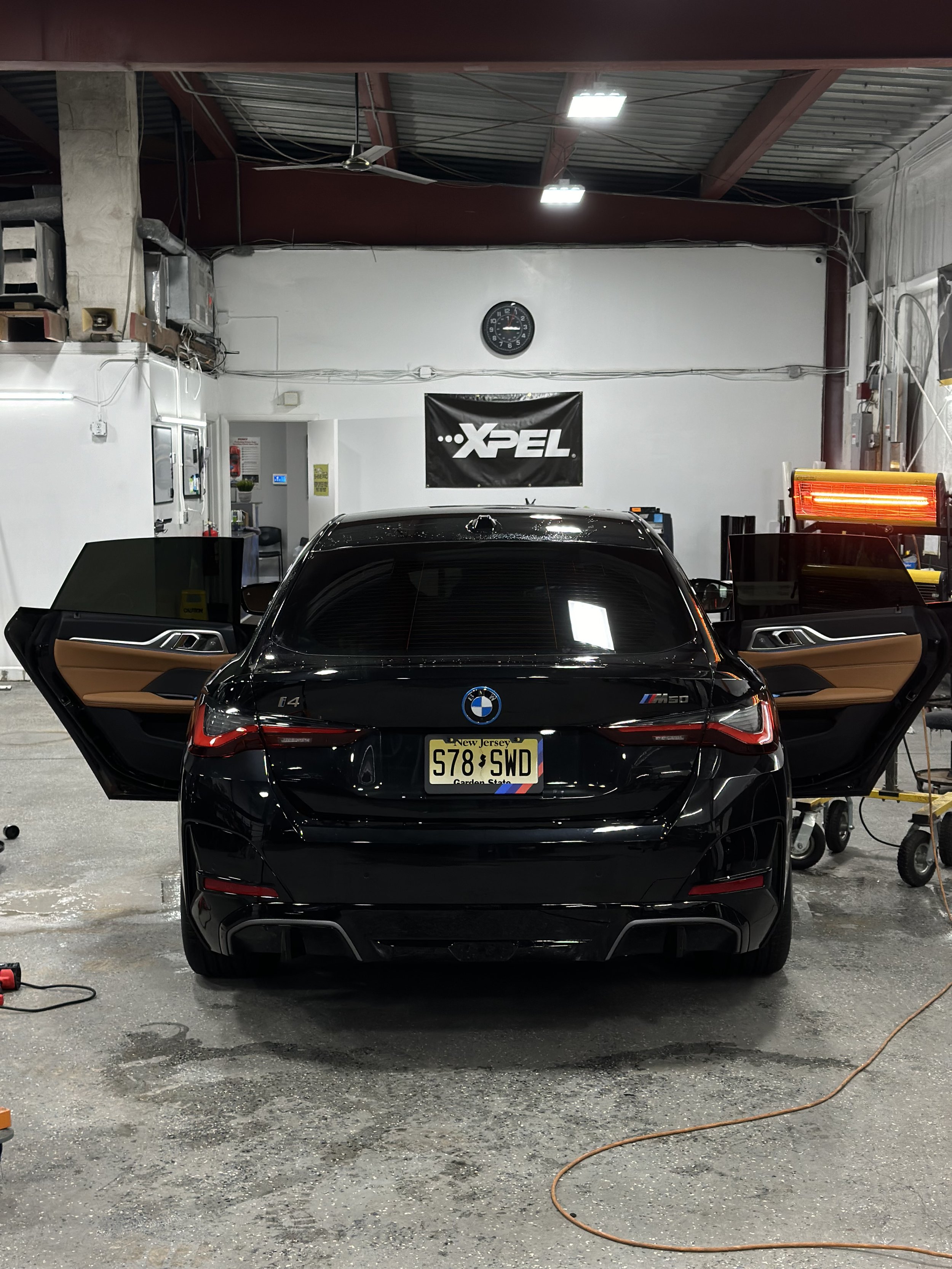
Professional Tinting
Solutions of South Jersey
SHINE PRO
TINTING
Window tint is a thin, transparent or semi-transparent film that is applied to the windows of vehicles, homes, or commercial buildings. It serves various purposes, including reducing glare, blocking ultraviolet (UV) radiation, providing privacy, and enhancing the aesthetic appeal of windows.
In the context of automotive applications, window tint is commonly applied to the windows of cars, trucks, and other vehicles. Automotive window tint is typically made of polyester film with a layer of adhesive on one side. The tinting film is available in various shades and levels of darkness, allowing individuals to choose the desired level of tint for their windows.
Key features and purposes of window tinting for vehicles include:
UV Protection: Window tint helps block a significant portion of the sun's harmful ultraviolet (UV) rays. UV rays can cause damage to the skin, contribute to fading of interior materials, and increase the temperature inside the vehicle.
Heat Reduction: Tinted windows can help reduce the heat entering the vehicle, making it more comfortable for occupants, especially during hot and sunny days. This can also contribute to energy efficiency by reducing the need for air conditioning.
Glare Reduction: Tinted windows can reduce glare from sunlight, headlights, and other sources, improving visibility and comfort for the driver and passengers.
Privacy: Tinted windows provide a level of privacy by limiting the visibility into the vehicle from the outside. This can be particularly important for protecting personal belongings and enhancing the overall security of the vehicle.
Aesthetic Enhancement: Window tinting can enhance the appearance of a vehicle, giving it a sleek and customized look. Different tint shades and finishes are available to suit individual preferences.

It's important to be aware of local regulations and laws regarding window tinting, as they vary from place to place. Regulations often specify the allowable levels of darkness for window tint on different windows of a vehicle, and exceeding these limits may result in legal consequences.
XPEL Prime XR Plus
Window Tint Packages
Full Coupe
$550
Full Sedan
$650
Full SUV
$800
Window Strip
$100
Front 2 Windows
$225
Full Windshield
$300
XPEL Prime CS
Window Tint Packages
Full SUV
$350
Full Coupe
$300
Full Sedan
$325
Window Strip
$50
Front 2 Windows
$175
Full Windshield
$175
NEW JERSEY WINDOW TINTING DISCLAIMER
New Jersey provides specific legal guidelines about tinting as well as other potential blocks to visibility in your car windows.
In fact, the legislation specifies that drivers cannot operate a vehicle that is “constructed, equipped, or loaded” to the point where it interferes with their ability to see out the front and sides of the vehicle.
Apart from window tint rules, the legislation also states that you cannot place signs, stickers, posters, or anything else that is “non-transparent” on the windshield, front side windows, or other connected areas (such as deflectors or wings) without express “commissioner” permission.
In short, that means anything other than a mandated parking sticker likely is “illegal” according to the law.
When it comes to tinting, the law is equally specific and prohibitive.
Initially, the state enacted window tint legislation in 2003 with the most recent update in 2018.
According to R.S.39:3-74, you may not have any “tinted material or film” on the windshield or front driver and passenger windows unless it meets three specific requirements.
Those three rules are either:
The tint/film must have come with the vehicle and permit light transmittance below 70 percent, except at the top six inches of the windshield,
Meet the medical exemption specifications,
Or be installed for law enforcement purposes.
The rear window and back side windows can have any level of darkness tint, without restriction.
New Jersey tint laws apply to both passenger and multi-purpose vehicles.












